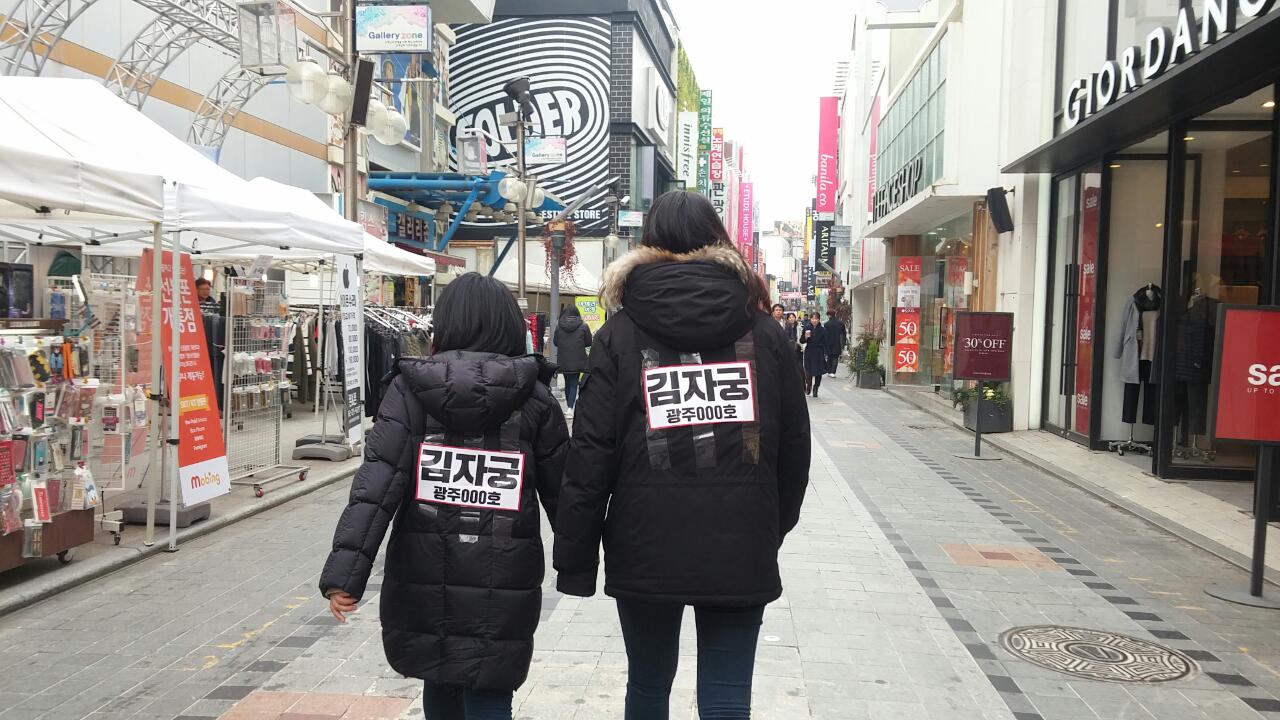Gwangju Women Link: Creating a World Free of Discrimination

Photos courtesy of Gwangju Women Link
On March 8, people around the world will celebrate the annual International Women’s Day. While originally turn-of-the-20th-century day of commemoration for female garment workers on strike in New York City, the day has become a means of reflection and bringing awareness to a range of issues. Women’s everyday struggles have recently loomed large in Korea, with the Gangnam murder incident of May 17, 2016 bursting open a national public conversation.
The Korean women’s rights movement grew out of the general surge in civic activism that accompanied the late 1980’s democratization period. One feminist NGO celebrating its thirtieth anniversary this year is Korea Women Link (한국여성민우회, Hanguk Yeoseong Minwoo-hoe, in Korean), based in Seoul with nine other local branches that have started up around the country. Their mission is working for gender equality and a world without discrimination, collaborating with environment, labor, disability, and other activist groups.
Gwangju Women Link was founded on March 11, 2000 and is now located in the office building next to Gwangju International Center. The group takes part in the women’s group associations in Gwangju, serving on the executive board of the annual Women’s Film Festival and as a member of the gender session at the annual World Human Rights Cities Forum. We sat down with a representative (known as “Joolbi”) in the neighboring office to learn more about the origins and various activities of Gwangju Women Link and their plans for this year’s Women’s Day.
“In my opinion, most of the regional groups started outside of the major cities because big cities have a women’s hotline to support domestic and sexual violence victims,” Joolbi said. “Isolated, progressive, women wanted to establish a Minwoo group. In Gwangju, we have the Spirit of May and the Gwangju Women’s Association [which] came from university student and professor activists.”

While they cannot provide direct medical or legal help, the organization is authorized by the Ministry of Family and Gender Equality to be a counseling and education center for sexual violence victims, with a mandatory 100 hours of training for each of the eleven staff members. In addition, Women Link gives referrals for further outside assistance.
“Government resources are used by everybody, and they [government organization staff members] do not have a long time to talk,” Joolbi said. “Minwoo counselees need more depth and detail.”
Gwangju Women Link differs from other centers with a more individual-and feminist-oriented counseling. Beyond in-house work, the organization runs a shelter for victims. Additionally, staff members and volunteers accompany victims to their legal meetings, monitoring whether the language used blames and further traumatizes the victim – a common occurrence that has launched their so-called First Person campaign to listen and speak out against victim-blaming.
Apart from the serious one-on-one work, Joolbi said that the Gwangju chapter is especially known for its short videos and carefully practiced indoor theater performances, as well as street theater and demonstrations. The regular Wednesday demonstration at the downtown post office has touched on the issue of the recently upheld abortion ban.
A 2016 map on a Ministry of the Interior website showing women in the 15 to 49 childbearing age was taken down amidst fierce criticism. Gwangju female activists took to the streets with stickers on their backs reading “Kim Uterus” or “Park Uterus” to ridicule government policy.
“The birthrate is lower now, so they are more strict with the policy,” Joolbi said. “However, the country has no right to control how many children women have.”

Through the street actions and awareness-raising campaigns, Gwangju Women Link works to affect public policy on a wide range of women’s issues. Joolbi highlighted the need to change the culture around everything, especially LGBT issues and teenagers, and to fight misogyny in online and offline forums. Beyond fighting for reproductive rights, a February 12 conference to combat a recent rise in sexual harassment on university campuses has led to supporting those victims who have a difficult time handling these cases on their own.
To keep a feminist consciousness alive in the local community, the group runs study sessions on feminist history and theory, as well as education workshops on gender equality. In this spirit, Joolbi talked about the upcoming Women’s Day in Gwangju, with the official celebration taking place Saturday, March 4. A parade will start at 4 p.m. on Geumnam-ro and finish with speeches and discussions at the 5.18 Democracy Plaza.
“The March 8 idea is that there is no democracy without gender equality. With the thirty-year anniversary this year, we want to have more minority voices, such as LGBT and people with disabilities. There will be a candlelight vigil. In 2017, we are focusing on the women’s association in Gwangju.”
Gwangju Women Link welcomes members who want to provide emotional and financial support to the movement, with over 300 members in the local area. There are three ways to become a member:
1) Through the website (see link below).
2) By phone at 062-529-0383.
3) Via the Google Docs form from the website.
The organization has also launched an instant donation text message campaign.
For more information, visit the Gwangju Women Link website: http://www.gjw.or.kr/gjwomenlink/ and follow them on Facebook and Twitter at the handle @광주여성민우회. To hear more about Gwangju Women Link from activist and staff member “Dodam,” please come to the March 25 GIC Talk.







